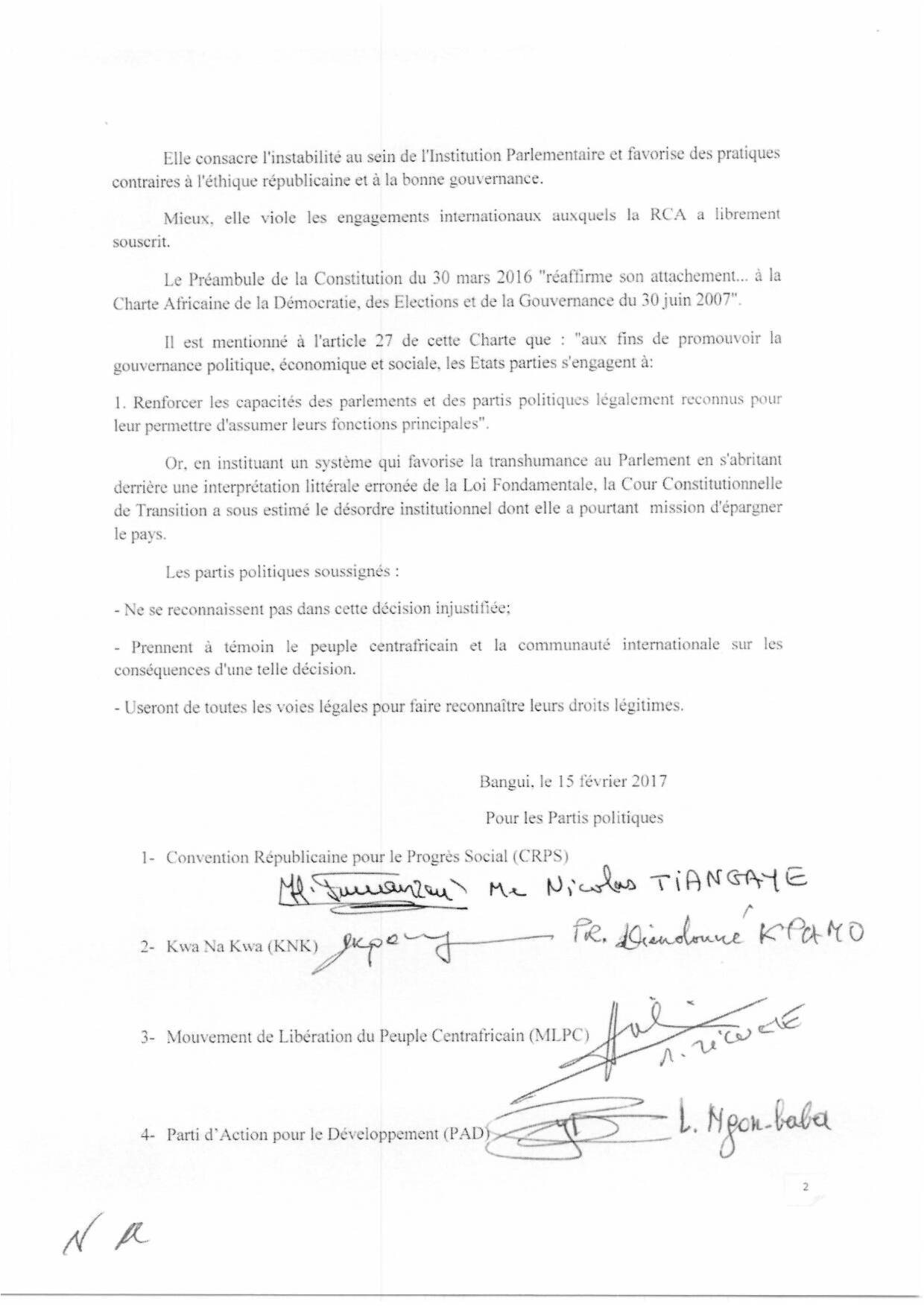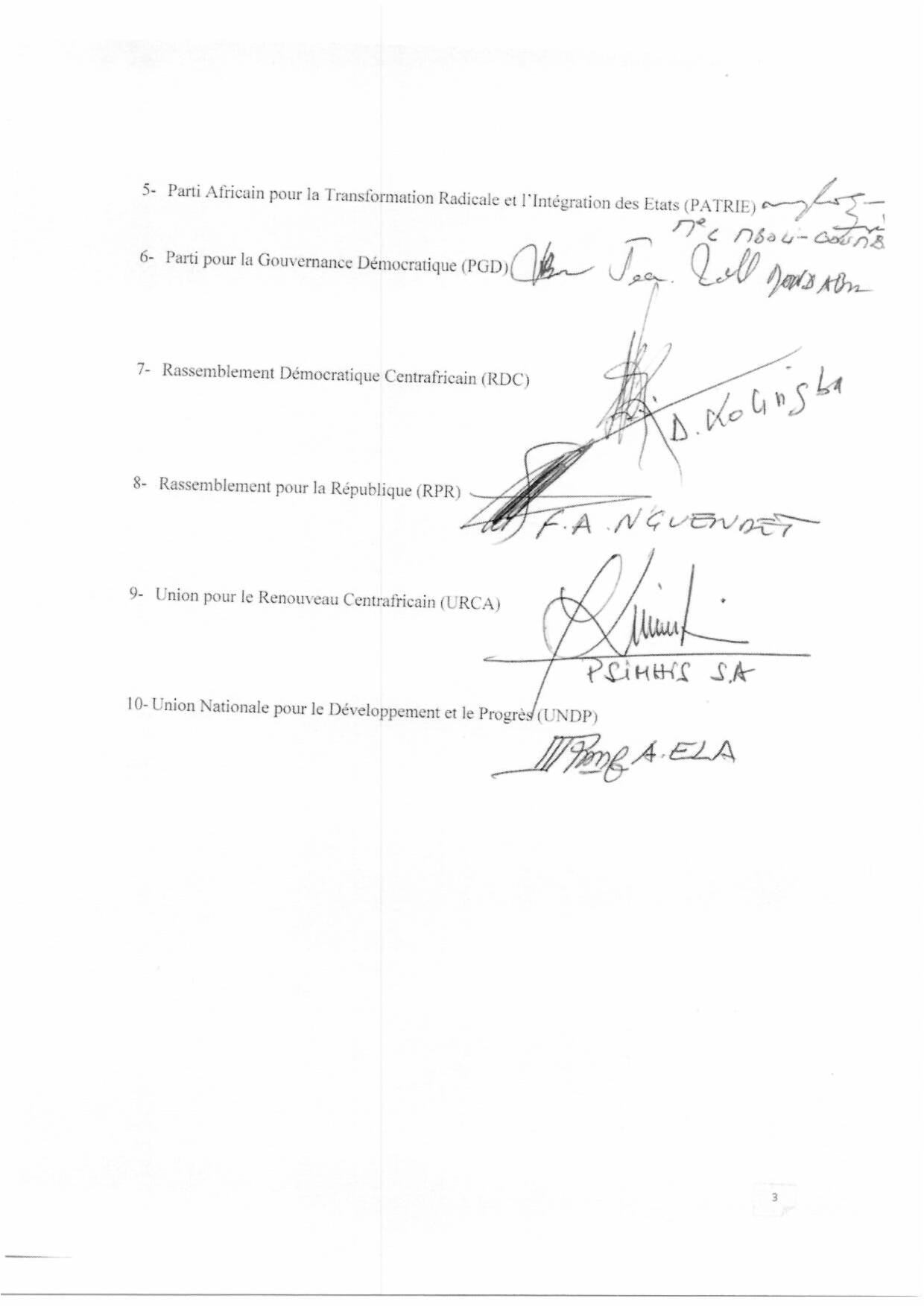
On 1 February 2017, the Constitutional Court of Transition ruled that it declares Article 6 (4) of the Constitution to be in breach of Article 68 of the Constitution, which stipulates that » A political party and who leaves his party, shall be considered as having resigned after the Constitutional Court has given an opinion on the matter to the political party concerned. In this case, he shall be replaced by his alternate who is bound by the same obligations.
The Transitional Constitutional Court relies on the provisions of Article 68 (2) and (3) which state:
« Each Deputy is the elected member of the Nation. The term of office of the Deputy may be shortened only by the dissolution of the National Assembly, the resignation, the cancellation or the forfeiture of the said Deputy. »
If the argument of the Constitutional Court of Transition appears to be seductive at first, its motivation can not withstand a thorough analysis.
Indeed, these are not new provisions in the national legal order.
The Constitution of 27 December 2004 already provided in Article 50 (2):
« The mandate of the deputy may be shortened only by dissolution of the National Assembly or by the resignation, cancellation or forfeiture of the said deputy ».
The Rules of Procedure of the Fourth Legislature also stipulated in Article 11 (4): « Any candidate elected as a deputy under the banner of a political party and who leaves his party shall be considered as having resigned. In this case, he shall be replaced by his alternate who is bound by the same obligations.
These Rules of Procedure were recognized in accordance with the Constitution of 27 December 2004 by the Constitutional Court on 14 February 2006.
It is easy to point out in a few nuances the identity of these texts and there is nothing to justify the spectacular reversal effected by the Constitutional Court of Transition.
The decision of this Court does not obey the moral values which are the foundation of the Law and open the way to « vagrancy » within the National Assembly.
It enshrines instability within the Parliamentary Institution and promotes practices contrary to republican ethics and good governance.
Better still, it violates the international commitments to which the CAR has freely subscribed.
The Preamble to the Constitution of 30 March 2016 « reaffirms its attachment to the African Charter on Democracy, Elections and Govemment of 30 June 2007 ».
Article 27 of the Charter states: « In order to promote political, economic and social governance, States Parties undertake to
L. Strengthen the capacities of legally recognized parliaments and political parties to enable them to assume their principal functions « .
However, by instituting a system that promotes transhumance in Parliament by sheltering itself from an erroneous literal interpretation of the Basic Law, the Constitutional Court of Transition underestimated the institutional disorder which it has nevertheless mission to spare the country.
The undersigned political parties
• Do not recognize themselves in this unwarranted decision
• Take the people of the Central African Republic and the international community to witness the consequences of such a decision.
• Use all legal channels to obtain recognition of their legitimate rights.
Bangui.ie 15 February 2017
For Political Parties
Republican Convention for Social Progress (CRPS) Kwa Na Kwa (KNK) Central African People’s Liberation Movement (MLPC)
Party of Action for Development (PAD African Party for Radical Transformation and State Integration (PATRIE)
Democratic Govemance Party (PGD) Central African Democratic Rally (DRC)
Rally for the Republic (RPR) Union for the Central African Renewal (URCA)
National Union for Development and Progress (UNDP)




